6 things the US should learn about fighting disease from countries like Finland, Canada, and Brazil
Hilary Brueck

- Despite paying top dollar for their healthcare, people in the US don't have the best health outcomes.
- The US is home to high maternal mortality rates and infectious disease surveillance is sub par.
Canada offers a "safe supply" of opioids and stimulants to keep people alive as they consider drug treatment options.
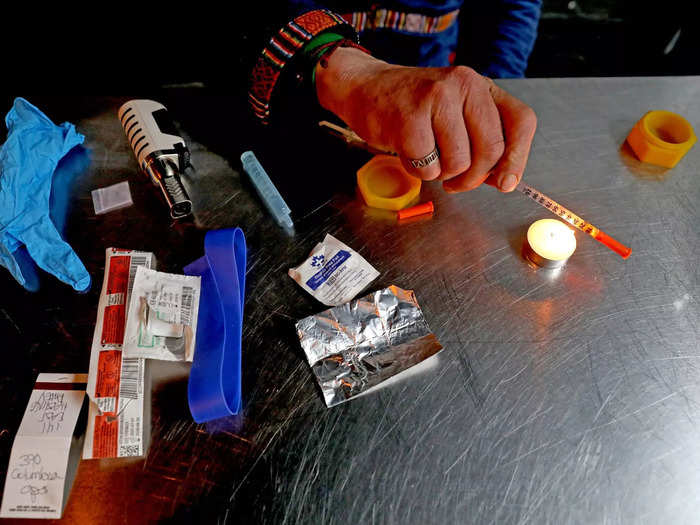
While still controversial, the goal of these Canadian programs is to provide people "who are at high risk of overdose" with a "safer alternative to the toxic illegal drug supply," the Canadian government says on its website.
Canada is also implementing several other measures to stem the overdose crisis, including making the overdose-reversing medication naloxone available for free, something several US states do too.
Though fatal overdoses have increased in both countries during the pandemic, Canada is still home to a lower rate of opioid overdose deaths than the US per capita, as STAT recently reported.
Pakistan has the world's largest environmental disease surveillance network in the world — which means that unlike the US, the country is regularly sampling toilet waste for polio.
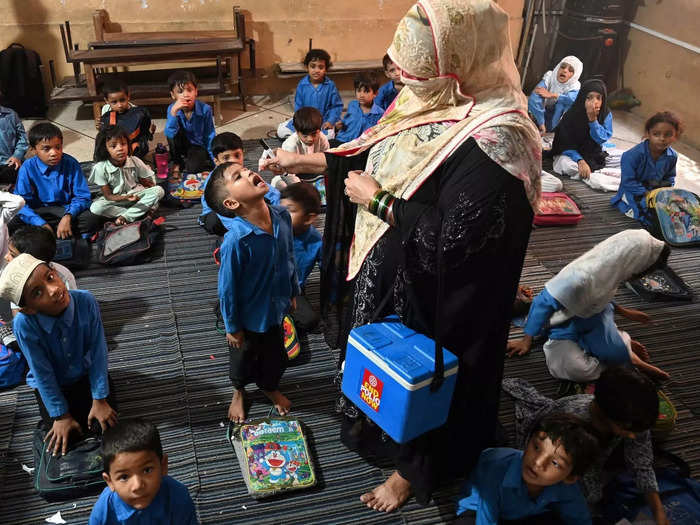
During the COVID-19 pandemic, the US started employing the same poop-testing technique that Pakistan's been using for years to fight polio outbreaks: wastewater surveillance.
"If we didn't know it before COVID, we certainly know now how quickly infectious disease can travel around the world — and polio is no different," Oliver Rosenbauer, a communications officer with the World Health Organization's Global Polio Eradication Initiative, told Insider.
Disease experts say wastewater is one of the most nimble and accurate population-wide gauges of infection spread, because all it requires is for people to flush their waste down the toilet. Then disease trackers can easily monitor how many of those people are sick by detecting specific pathogens in the water.
Rosenbauer said that while huge strides have been made to reduce the spread of wild poliovirus in Pakistan over the past 25 years, it's a disease that will "continue to spread until you achieve global eradication."
Israel's streamlined electronic health records system makes better medical research possible.
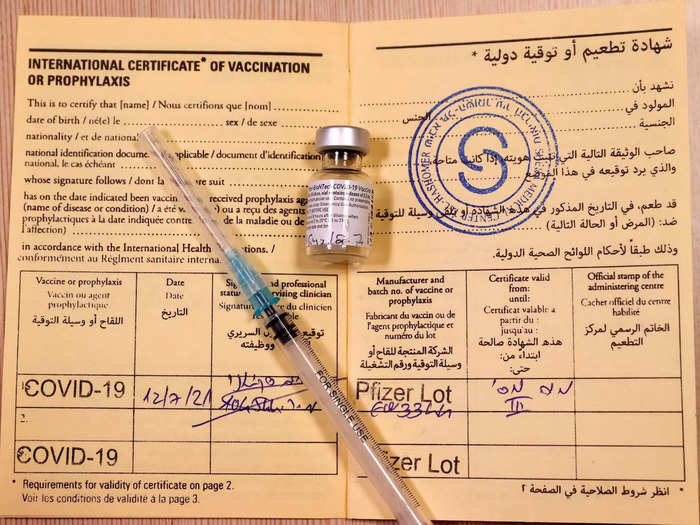
In Israel, almost everyone in the country uses one of four non-profit HMO healthcare providers, which can each crunch anonymized data on their patients to provide statistical insights on how well treatments, diagnostics, and therapeutics — including vaccines — really work.
Israel's big digital health datasets make it easy for researchers and doctors to quickly answer key questions like, "How can we improve screening for colon cancer?" and "How well is this new COVID-19 vaccine working?"
US government scientists repeatedly leaned on Israel's high-quality, real-time COVID vaccine effectiveness data to make quick-draw public health decisions during the pandemic, months before similar data was compiled from American hospitals.
In Finland, expectant parents can order a free baby gift box filled with clothing, bedding, personal care products, and even a little bed and mattress.
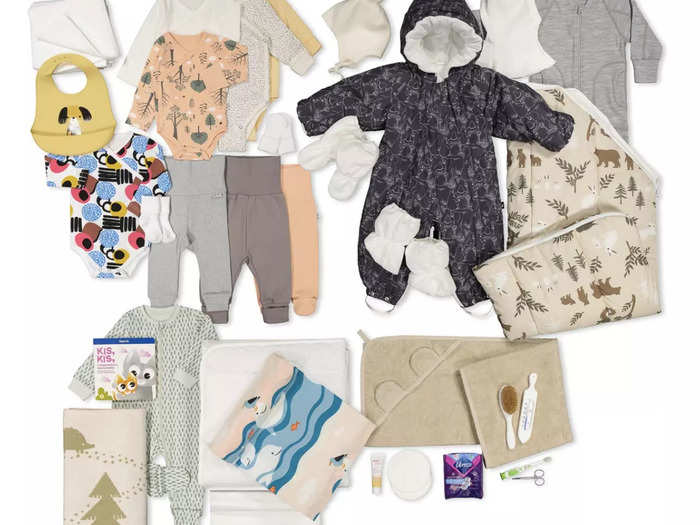
In 1938, Finland introduced a free baby box in an effort to curb high infant mortality rates, and it appears to have worked. Today, Finland boasts some of the best infant survival rates in the world.
In exchange for the box, which can double as a baby's first bed, expectant moms are required to go in for a health check during their pregnancy. (Those who do the health check and don't want the baby box can get a roughly $180 tax-free grant, but the vast majority of Finnish parents opt to get the goodies instead.)
Finish journalist and author Anu Partanen told CNBC's "Make It" the box is a "helpful, wonderful thing that makes you feel like 'I'm being cared for.'"
The UK has a federal agency dedicated to national health security, which conducts near real-time disease surveillance for COVID and other pathogens.
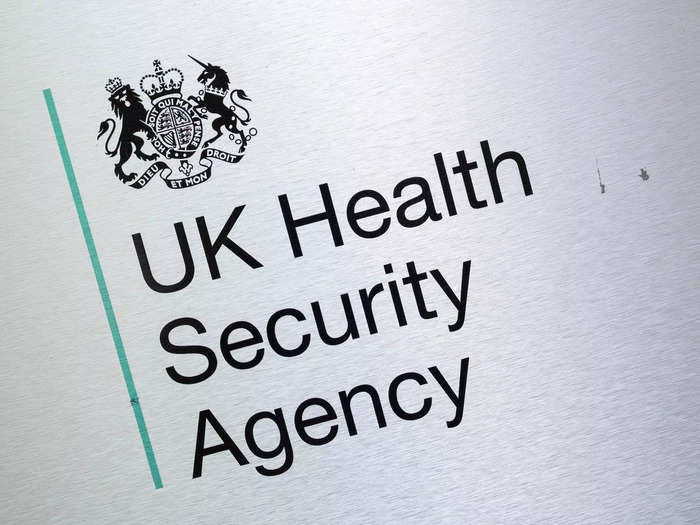
The UK HSA is a leading tracker of COVID variants, and the agency has authored nearly 50 technical briefings on variants under investigation during the pandemic.
The agency also detected polio in London wastewater six months before the US looked at New York's sewage and found the same crippling disease.
Recently, the UK HSA has noted steep, deadly upticks in scarlet fever cases prompted by dangerous group A strep, only because suspected scarlet fever cases are required to be reported to health authorities.
In the US, the Centers for Disease Control and Prevention has only anecdotal information about a potential uptick in pediatric cases, because reporting isn't mandatory stateside.
But in April, the CDC launched a Center for Forecasting and Outbreak Analytics that the agency hopes will "improve the nation's ability to prepare for and respond to infectious disease threats using data, modeling, and analytics." The CFA has already established a partnership with the UK HSA.
Brazil has a national culture of vaccine endorsement that transcends politics.
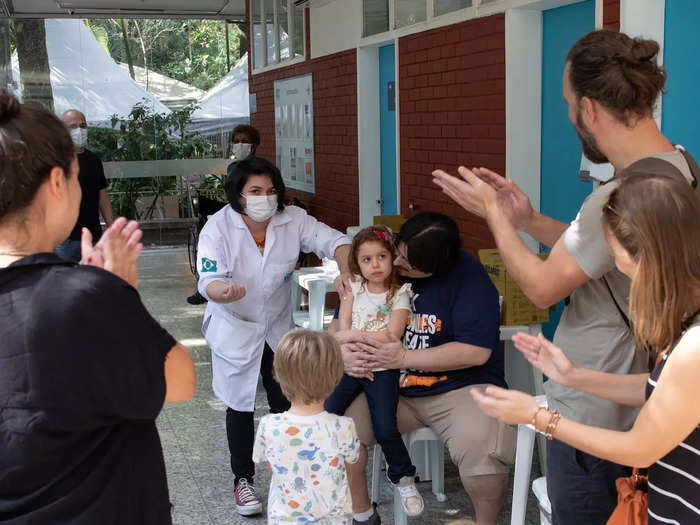
Former Brazilian President Jair Bolsonaro swore he wouldn't get a COVID-19 vaccine, but most Brazilians did anyway.
In survey after survey, COVID-19 vaccine acceptance rates hover near 90% or higher for Brazilian people. Pregnant women, moms and parents in Brazil all express willingness to get themselves and their families vaccinated at higher rates than in the US.
"There's a pretty proud tradition of getting vaccinated here — it's kind of seen as like your civic duty," Dr. Kevan Akrami, an infectious-disease and critical-care physician working in Brazil, previously told Insider.
Brazilians harbor recent memories of how vaccines can combat other devastating diseases including polio, measles, and yellow fever. They even have a national vaccine mascot, named Zé Gotinha, aka "droplet Joe."
"Across political divides, most people still are being rational and saying, 'I should get vaccinated to protect myself," Akrami said.
Popular Right Now
Popular Keywords
Advertisement